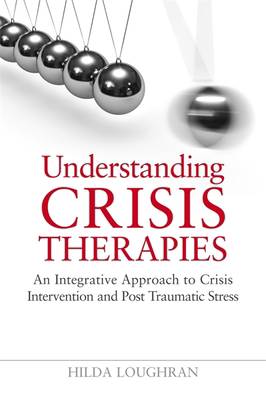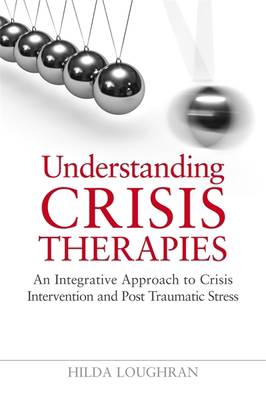
- Retrait gratuit dans votre magasin Club
- 7.000.000 titres dans notre catalogue
- Payer en toute sécurité
- Toujours un magasin près de chez vous
- Retrait gratuit dans votre magasin Club
- 7.000.0000 titres dans notre catalogue
- Payer en toute sécurité
- Toujours un magasin près de chez vous
Understanding Crisis Therapies
An Integrative Approach to Crisis Intervention and Post Traumatic Stress
Hilda Loughran
Livre broché | Anglais
32,45 €
+ 64 points
Description
Events in people's lives can have a profound impact; anything from moving house or losing a job to the death of a loved one or a natural disaster can push an individual into a state of crisis. Crisis intervention is a brief therapy and immediate response which aims to support the person through the crisis period.
This book covers the different influences on crisis therapies and traces the development of crisis theory across its different phases. Each chapter explores a different approach, including psychoanalytic; cognitive, which includes motivational interviewing; systemic; radical; and social construction, which covers solution focused therapy and enhancing resilience. Chapters on the developmental, behavioural, and post-traumatic approaches are also included, and the final chapter illustrates an integrated framework drawing on our knowledge of crisis so far. Case studies are featured throughout to demonstrate the theories and therapies in practice. This clear guide will assist students and practitioners to understand the different types of intervention and how they relate to the theoretical context. It will be a vital text for all those working with people in crisis, including social workers, counsellors, crisis workers and students in these fields.Spécifications
Parties prenantes
- Auteur(s) :
- Editeur:
Contenu
- Nombre de pages :
- 224
- Langue:
- Anglais
Caractéristiques
- EAN:
- 9781849050326
- Date de parution :
- 15-05-11
- Format:
- Livre broché
- Format numérique:
- Trade paperback (VS)
- Dimensions :
- 152 mm x 226 mm
- Poids :
- 340 g

Les avis
Nous publions uniquement les avis qui respectent les conditions requises. Consultez nos conditions pour les avis.






